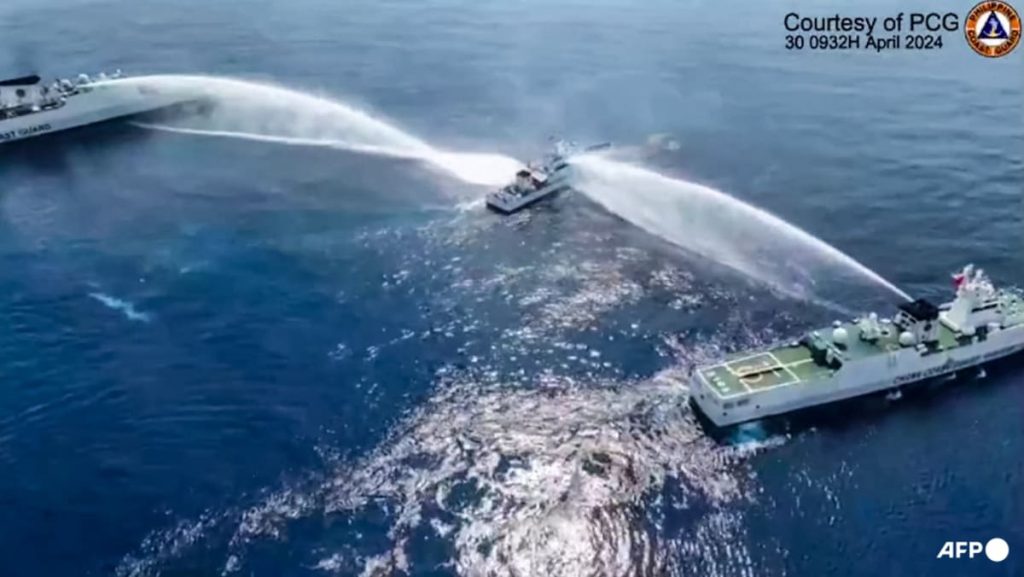US Defense Secretary Lloyd Austin condemned the damage to Philippine vessels and injuries to their crew caused by a recent flare-up in the South China Sea involving China. Austin called the behavior “irresponsible” and in violation of international law. The incident took place at the disputed Scarborough Shoal, where China’s coast guard used water cannon against two vessels from the Philippines, sparking outrage. Manila and Beijing have been engaged in a war of words in the aftermath of the confrontation.
Austin reaffirmed the United States’ commitment to supporting the Philippines, citing the 1951 Mutual Defence Treaty between the two countries. He emphasized that the US stands with the Philippines and described their commitment as “ironclad”. Austin’s remarks came following a meeting with defense counterparts from the Philippines, Australia, and Japan. The ongoing tensions in the South China Sea have raised concerns about the potential for further escalation and military confrontation in the region.
Philippine Defence Secretary Gilberto Teodoro, speaking alongside Austin, declined to speculate on when Manila might invoke the Mutual Defence Treaty with the United States. Teodoro characterized such a decision as a “political decision” that would be made based on specific circumstances at the time. The Philippines has been navigating complex geopolitics in the region, seeking to balance its relations with major powers like the US and China while asserting its sovereignty in territorial disputes.
The Scarborough Shoal incident highlighted the persistent maritime disputes in the South China Sea, where multiple claimants, including China, the Philippines, Vietnam, and others, have overlapping claims. Tensions have been rising in recent years as China has asserted its claims through island-building, military presence, and coast guard patrols in disputed waters. The US has been supportive of countries like the Philippines in asserting their rights in the region, conducting freedom of navigation operations and providing military assistance.
The South China Sea is a critical waterway for global trade, serving as a major route for shipping and energy resources. The region is also significant in terms of strategic importance, with countries vying for control over territory, resources, and maritime influence. The presence of competing military forces and the risk of miscalculation or conflict pose a threat to regional stability and security. The United States has sought to bolster partnerships with allies and partners in the region to uphold a rules-based international order.
As the situation in the South China Sea continues to evolve, diplomatic efforts are being made to address the underlying issues and prevent further escalations. The US and like-minded countries are calling for a peaceful resolution to the disputes in accordance with international law, including the United Nations Convention on the Law of the Sea (UNCLOS). The recent incident involving the Philippine vessels underscores the need for all parties to exercise restraint and engage in dialogue to prevent further incidents and preserve regional stability.


